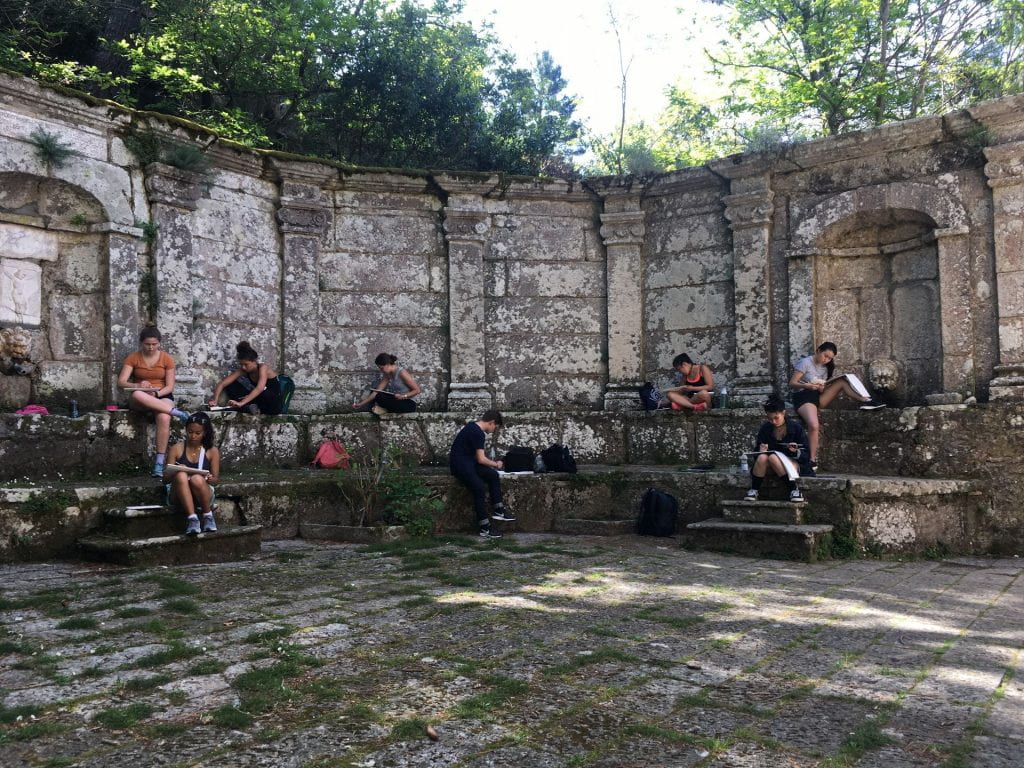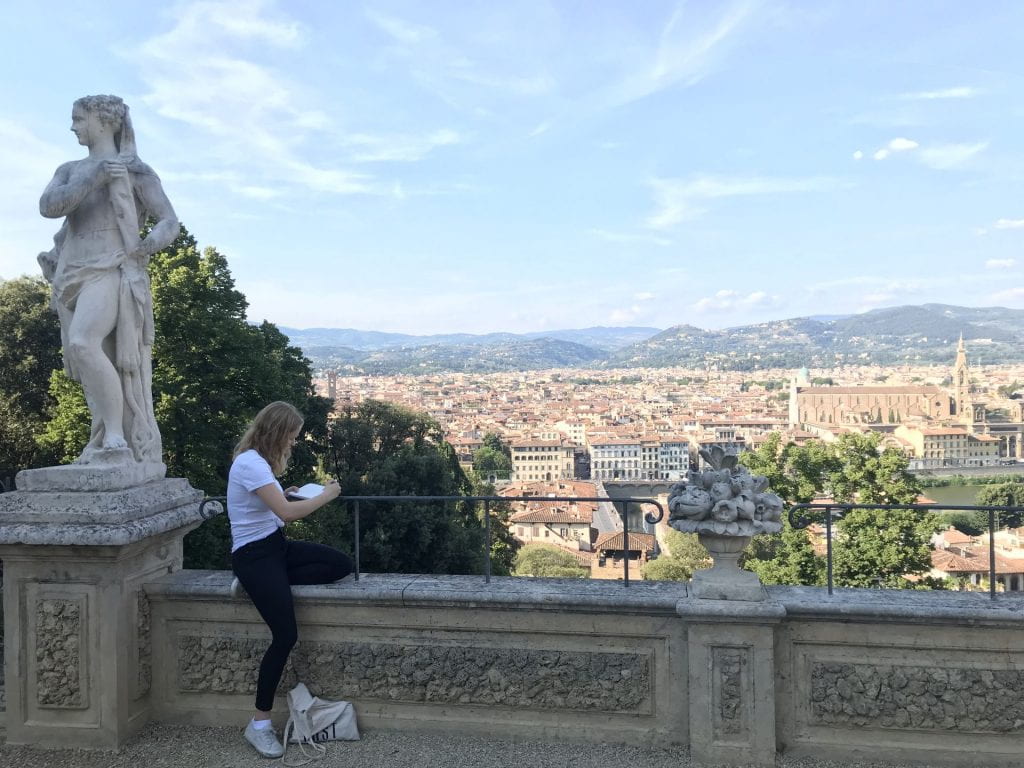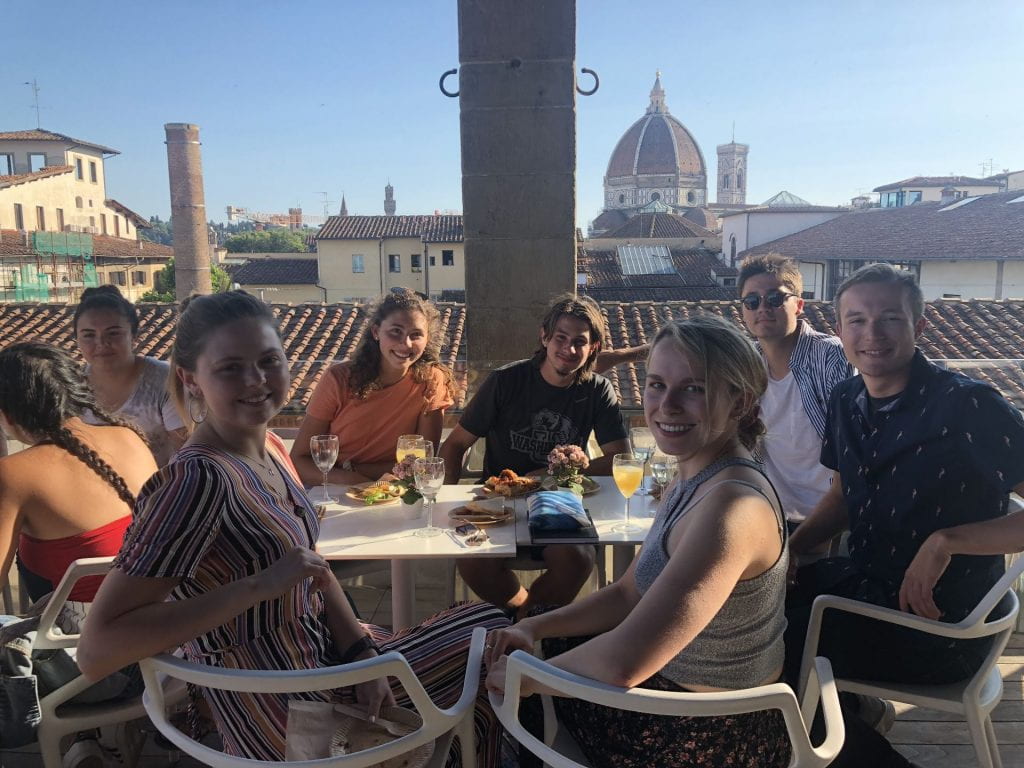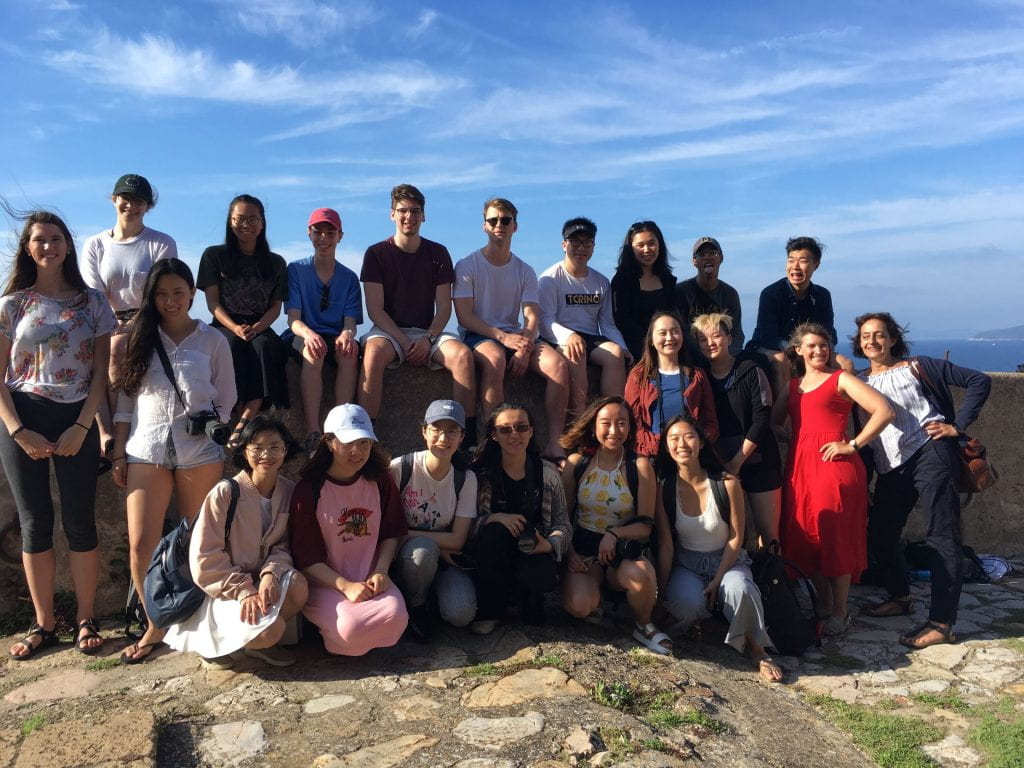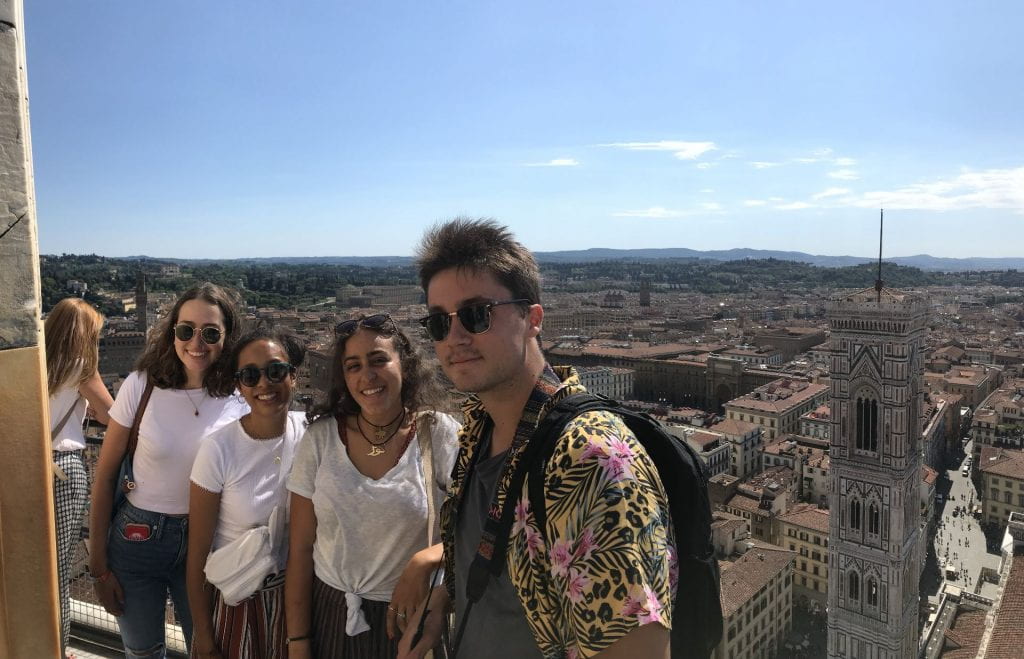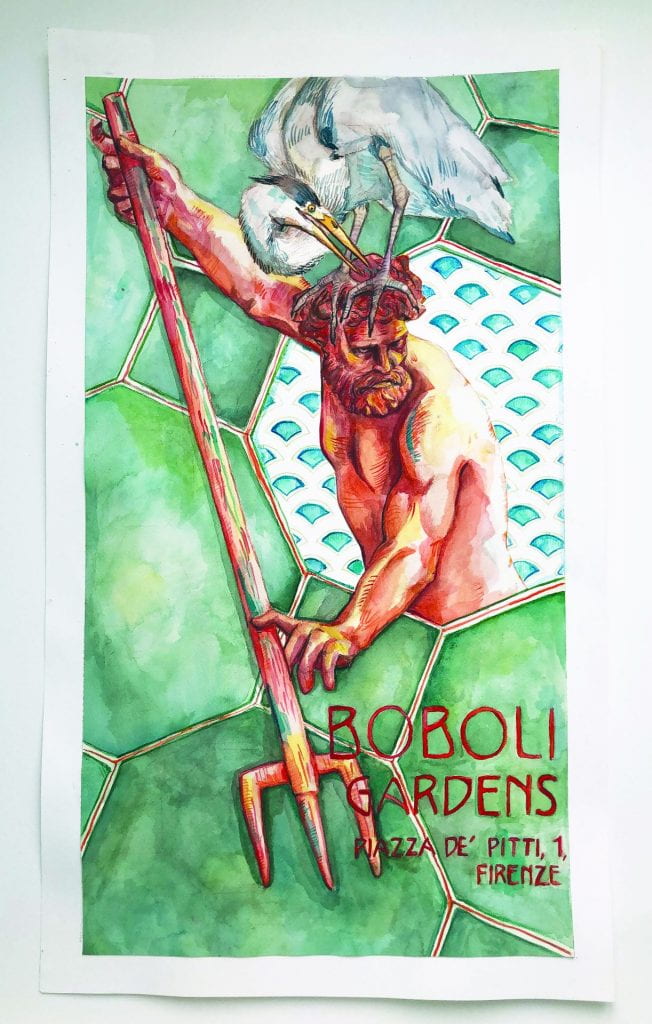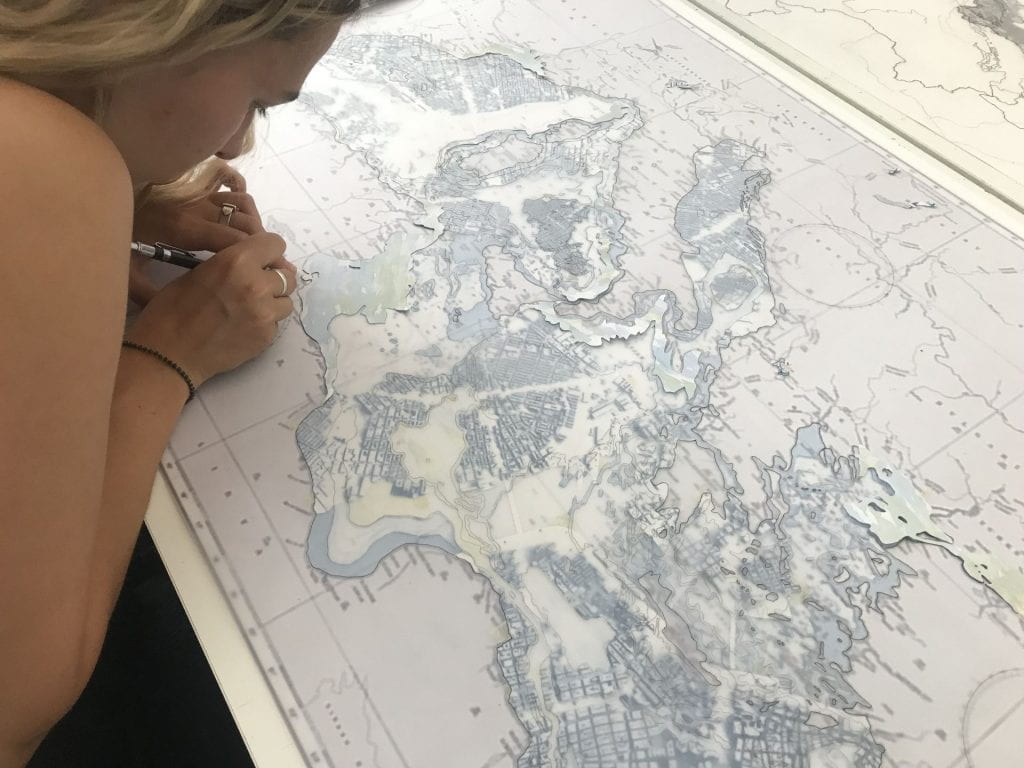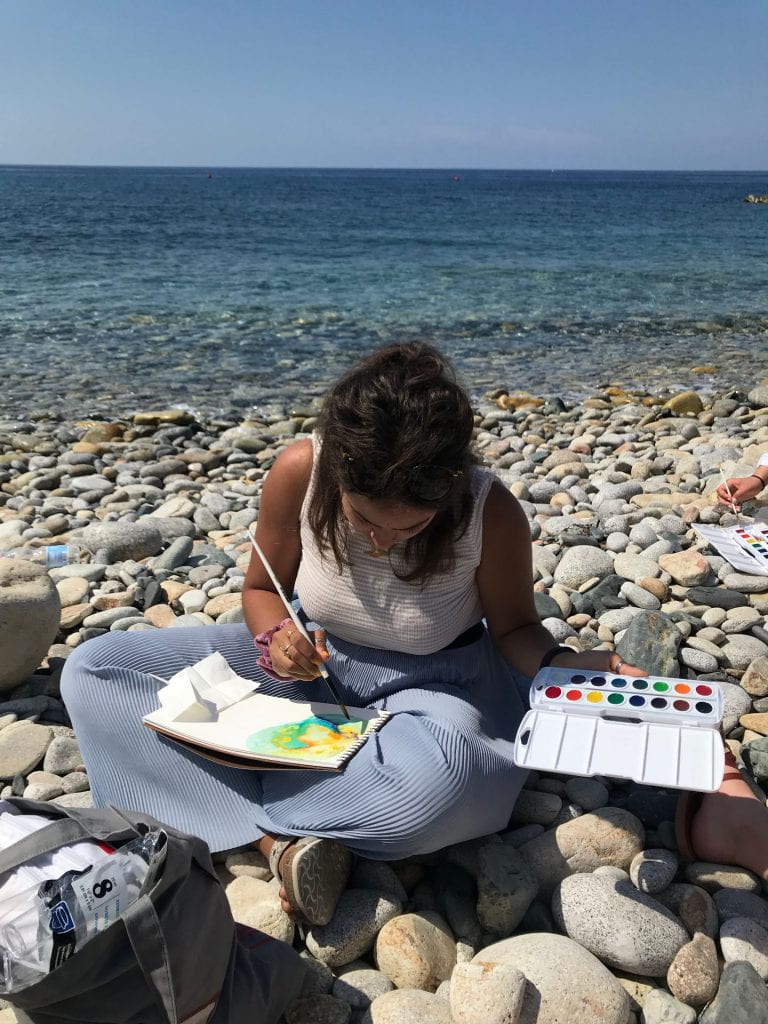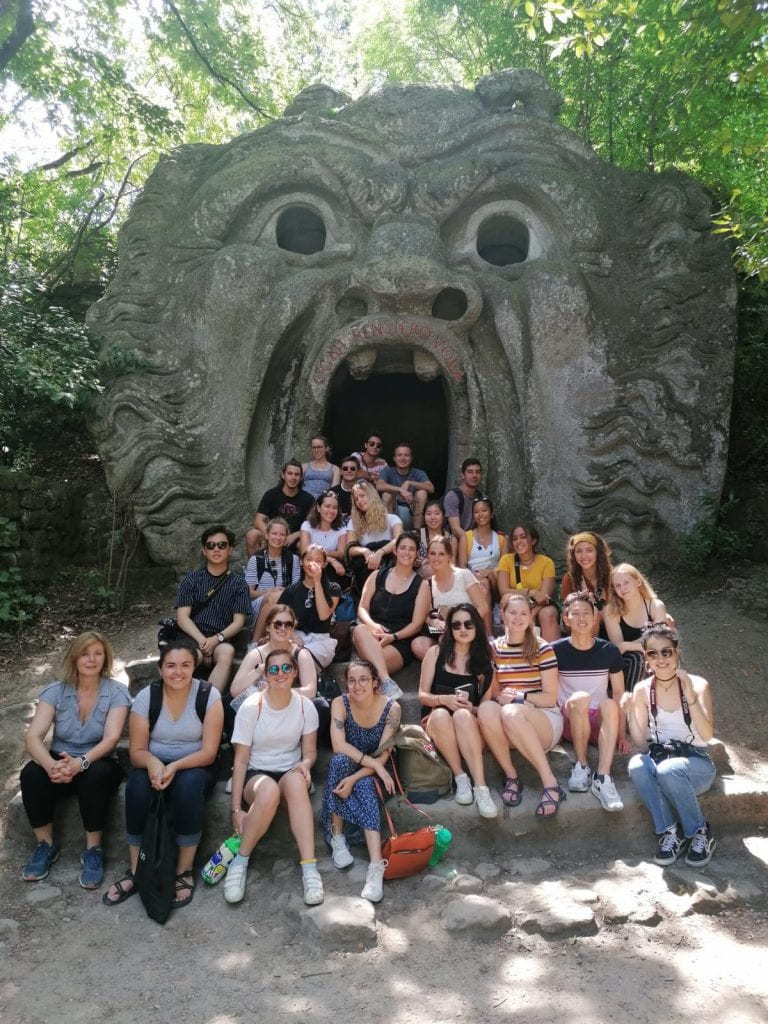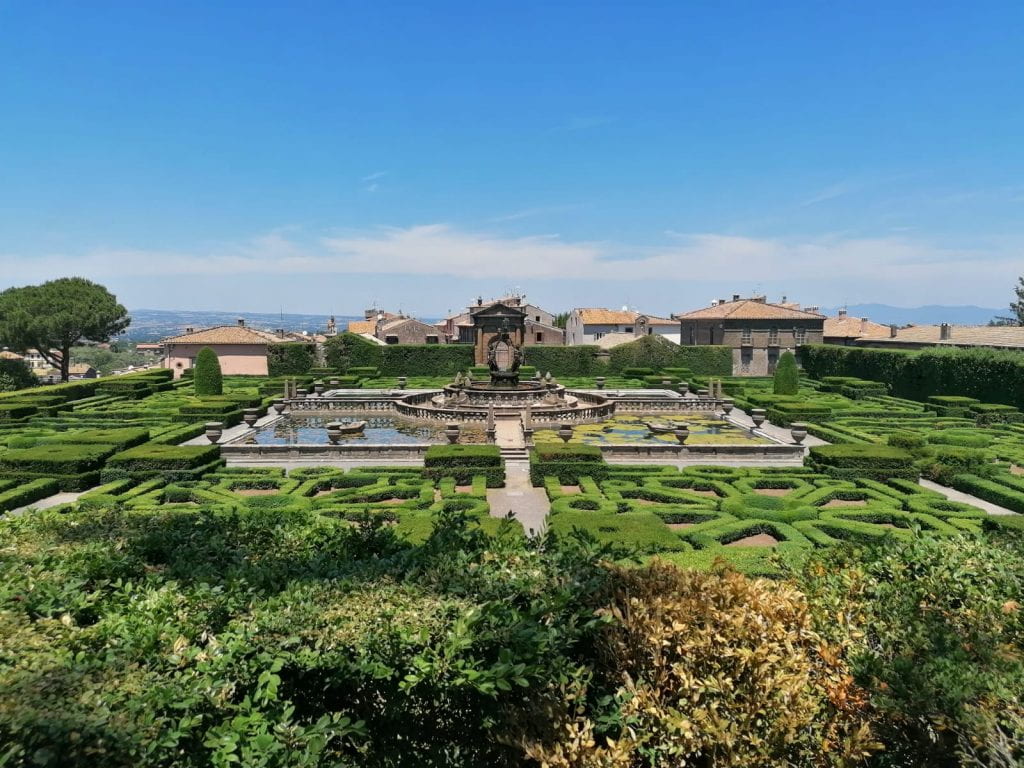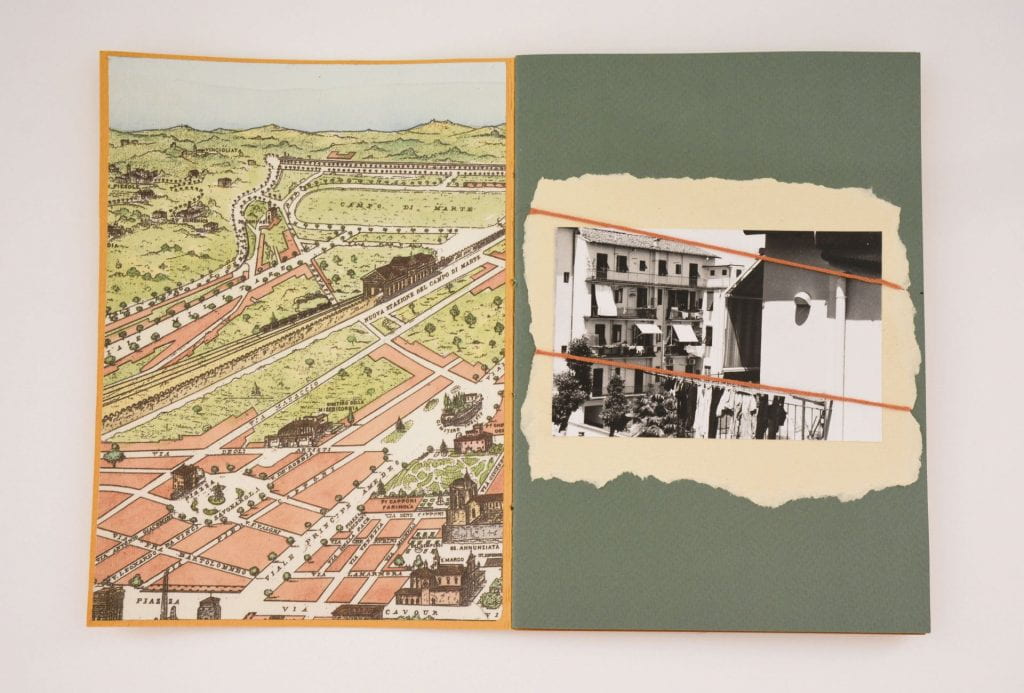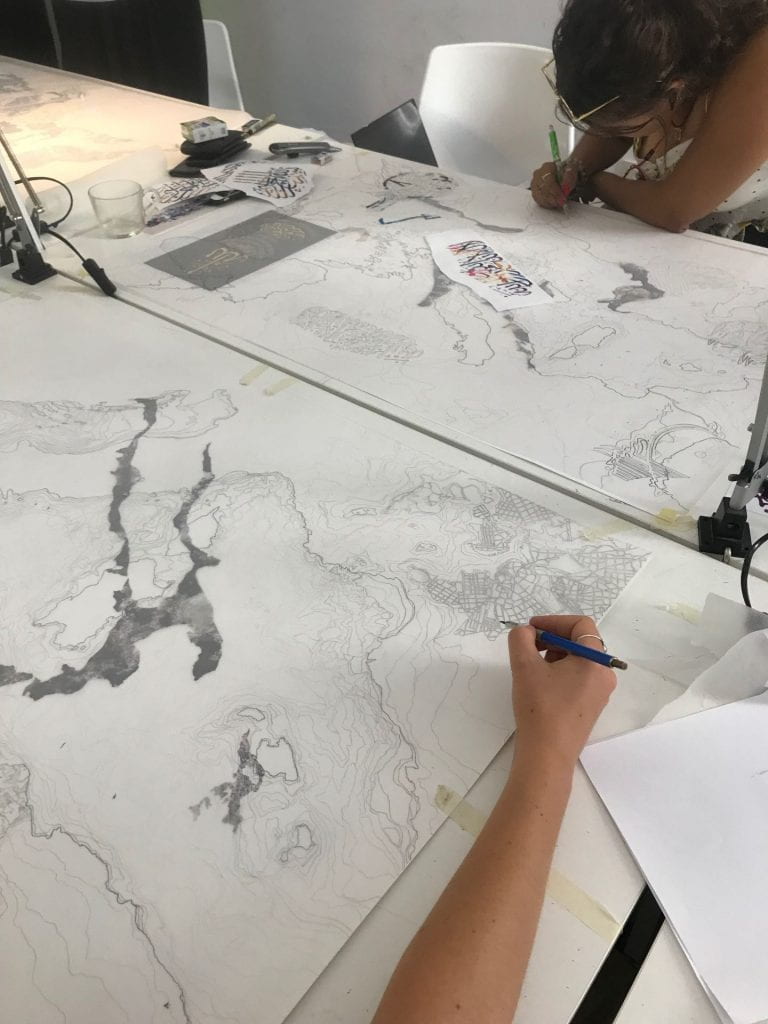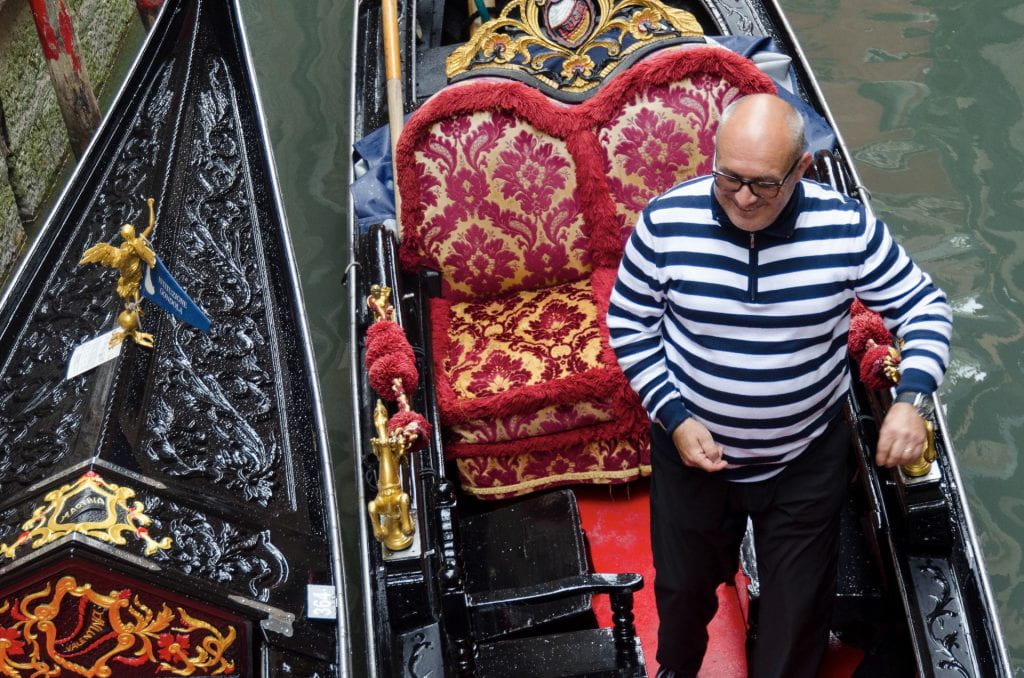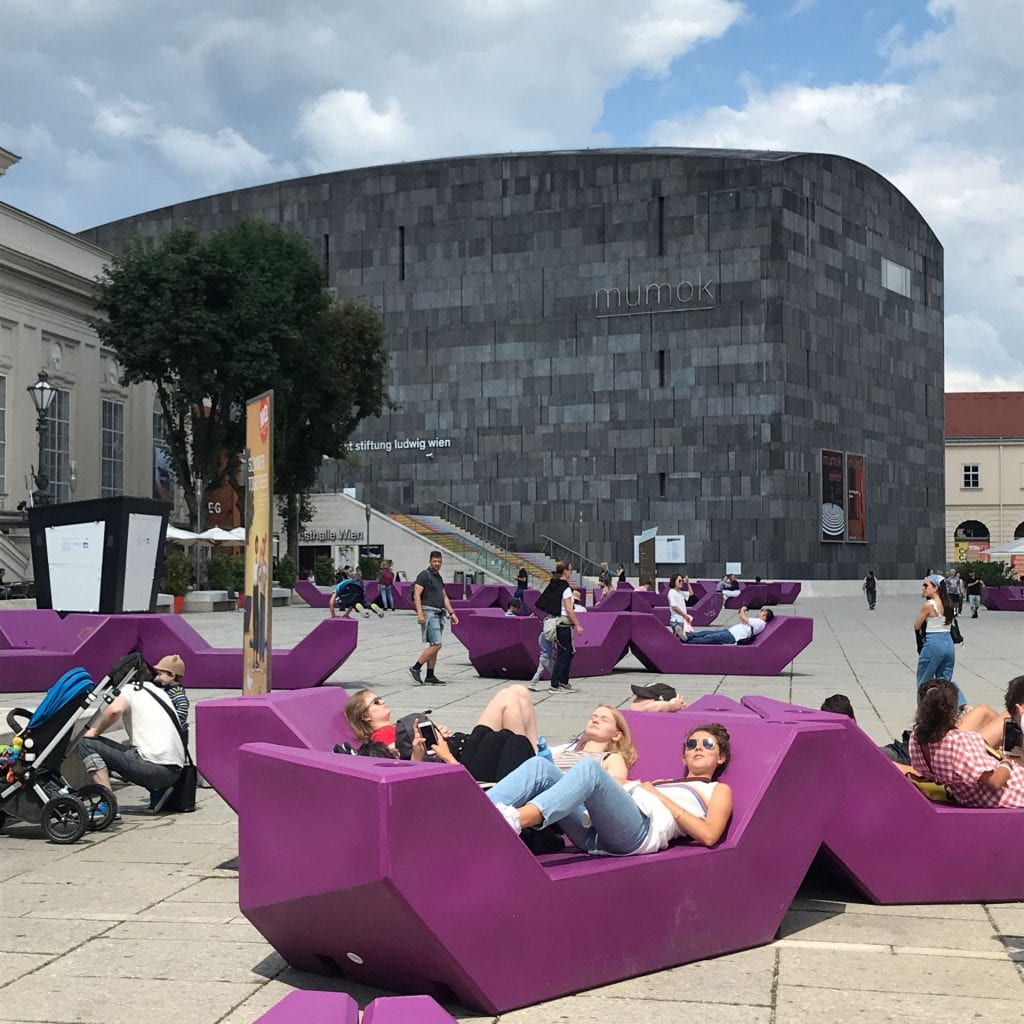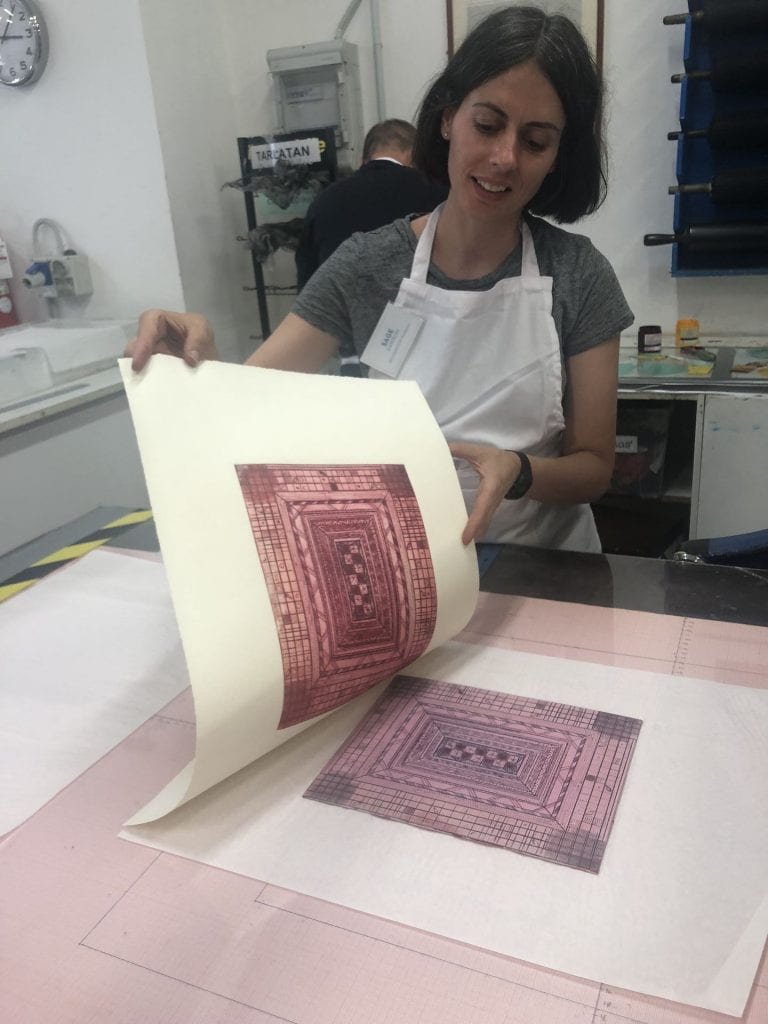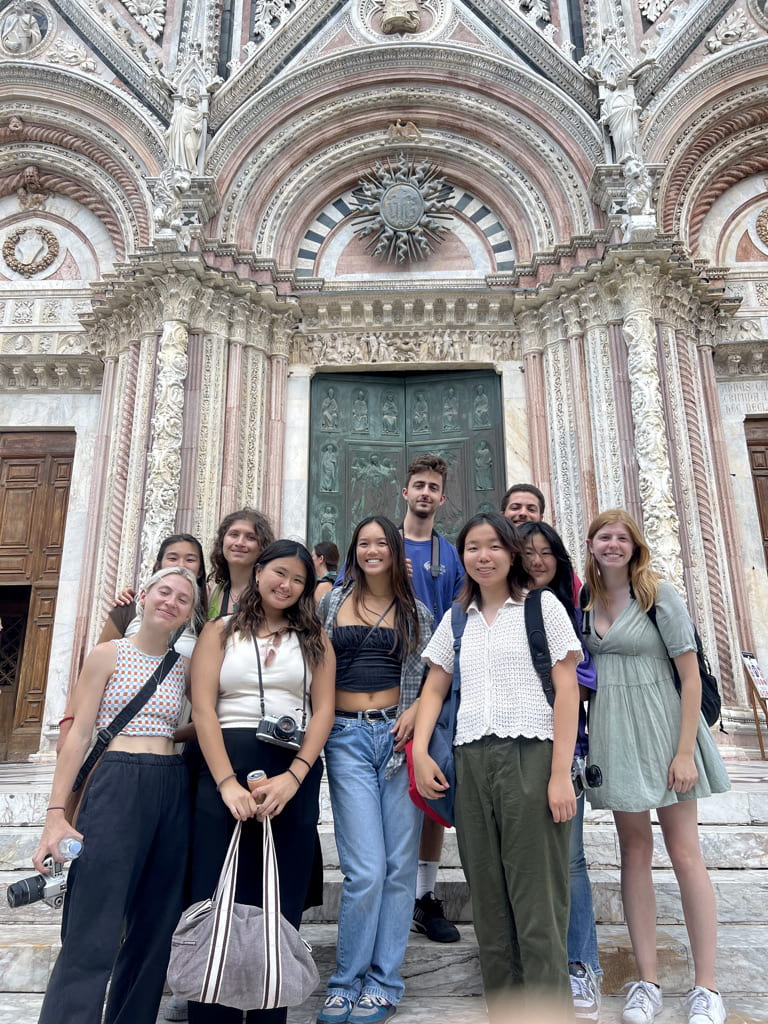
Applications are currently closed
Open to all university students, the summer program provides an interdisciplinary learning environment within the framework of DESIGN, ART, ARCHITECTURE, and ART HISTORY. The program combines an immersive studio experience in Florence with visits to multiple cities in Italy with diverse cultures and ethnicities.
Download the 2023 Program Brochure here.
The summer 2024 program is May 17 – July 31.
You earn 10 credits:
- Italian Workshop – 1 credit
- Concentration studio in Art or Architecture – 6 credits
- Everyone takes Art History – 3 credits
The Florence summer program examines visual culture as a social, political, and aesthetic construct through an art history course and either an architecture or art studio. Collaborative in nature, the studios use drawing and design as a medium for exploration and visual experimentation, as you study the nuanced layers of history within the dynamic context of contemporary life. Visits to other Italian cities will encourage exploration of urban diversity and multiculturalism. Students will explore the themes of history, politics, conflict, and social justice and their impact on creative work. Work in the studio will extend into the city streets, allowing the students to engage the full cultural landscape of contemporary Italy. The small size of the program allows each student to work closely with professors in developing a body of work that is highly personalized, culminating in well-developed final projects.
“It was an incredible opportunity to get to work with faculty on a much closer basis, and at such a unique setting. Our classroom was beyond just the studio – it was the entire city. We would often spend class sessions in piazzas, museums, bridges, markets, making these exciting discoveries and observations with our professors.”
– George Zhang
Any WashU student can study abroad in the Florence Summer Program. Students must:
- Apply on time
- Have and maintain a 3.0 GPA
- Be in good academic and behavioral standing with the university
- Attend the two mandatory prep meetings before departing for the program
There is no language prerequisite for the summer program.
Apply now at sa.wustl.edu. You will write a short essay about your interest in going abroad and what it will bring to your academics and personal experience. You will also submit the name and contact information for two references. They do not need to write a letter.
Students will earn 10 credits during the summer program. All courses must be taken for a grade and the grade will show on the transcript. Registration is handled during Pre-departure Orientation.
Upon successful completion, you receive a total of 10 credits:
- 1 credit of Italian language
- 6 credits of art or architecture studio
- 3 credits of art and architecture history
2023 Architecture Studio: Architectural Apparitions: City of Collective Memory:
Faculty – Constance Vale
One can say that the city itself is the collective memory of its people, and like memory, it is associated with objects and places. The city is the locus of the collective memory.—Aldo Rossi
Florence is vibrantly animated by the life and culture of its citizens and, simultaneously, filled with apparitions and imprints of the past. This studio asks you to frame a history of the city as both a living social system and an archive of collective memory. You will use media that hybridize past and future, including drawing, printmaking, fotoromanzo films, and digital photogrammetry. Hybridizing this media, you will undertake the progressive design of a reliquary, a sepulcher, and a necropolis that recognize funerary practices from the wide array of cultures collected in contemporary Florence and accommodate bodies in life and death.
2023 Art Studio: Drawing the City
Faculty: Shreyas Ravikrishnan
What makes a city? Is it people in it, outside it, passing through it? Or is it spatial, like geography or architecture? Or is it something intangible, like time, taste, or sound? In this studio, students will engage with the city of Florence through their sketchbook. Throughout the course, students will explore different methods of drawing on-site in their sketchbooks at various locations in the city. Their sketchbooks will act as repositories of both research and visual exploration that inform a series of scaled projects – zines, maps, postcards, posters – that frame Florence’s narrative through different lenses.
For Sam Fox School students, the studio and history courses count toward your major, including as Sam Fox School Elective courses. These credits may also count toward a minor in design, art, or architecture, or fulfill the Humanities credit for engineering students.
Read the course descriptions and see photos from past summers here.
Students obtain their own passports. Students who already have passports should make sure they will be valid at least three months after their last day in Europe. If your passport will expire before this, then you should renew your passport as soon as possible. Visit travel.state.gov for more info.
International students should make sure all necessary paperwork is in order and that their country of origin has passport and visa reciprocity with Italy.
US, Korean, Canadian, and European passport holders that are traveling to Italy for less than 90 days do not need a visa.
Chinese passport holders do need a visa to travel to Italy. The School will assist students with the visa application process.
Due to varying points of departure and individual travel schedules, students arrange their own transportation. During preparation meetings, arrival/departure locations and dates will be confirmed. Specific dates and destinations for arrival and departure will be posted here in early Spring.
Students are responsible for buying their own flights.
Field trips are organized by faculty to destinations throughout Italy including to Venice for the Venice Biennale. These field trips are a required part of the Program and do not disappoint. The trips are organized for the entire group and billing for the field trips (transportation, lodging, museum admissions) will be on WebSTAC, not out of pocket while abroad.
Students live in a residence in Florence, a short walking distance from the studios, markets, shops, sites, and train station. It is fully furnished with bedrooms with en-suite bathrooms, kitchen, living area, dining area, wifi, and air conditioning. Florence is a very walkable city and public transportation is also readily available and easy to use.
Single, double, and triple rooms are available, but single rooms are more rare. Housing costs during the program range from about $1,100/month for triple occupancy rooms to $2,140/month for single occupancy rooms. This cost includes utilities.
Students are required to pay a $250 deposit for the furnished residence. If the residence is in good condition at the end of the summer, students will receive a full refund. Any charges for damage to apartment will be taken out of the deposit.
Students are required to stay in university arranged housing.
Estimated tuition for the 2023 is $15,100 In addition, students will be responsible for approximately $2,000 in fees to cover international health insurance, some course materials, field trips, and museum passes.
A limited number of students can receive financial assistance based on need. Please indicate on your application whether you are interested in receiving financial assistance.
Students will need to make a Program Deposit of $1,000 to reserve their place in the program. This will be due approximately 1 month after notification of acceptance.
Tuition and fees are due before the program begins and will be billed through WebSTAC. Students are responsible for paying for airfare to Italy, supplies, food, visa application fee, international phone, etc.
Outside scholarships are accepted to cover program costs. There are a variety of scholarships offered by or outside of Washington University that can help you pay for studying abroad. It is important to note that deadlines change from year-to-year and after often six-nine months (or even a year) prior to your term abroad. This list is NOT exhaustive; be sure to do some research on your own.
Washington University Resources
Global Resources: Opportunities for funding to support research and study abroad are available through Washington University in St. Louis.
Avram A. & Jill Glazer Global Learning Fund: Opportunities for funding to support BSBA students abroad on BSBA administered programs. Students should have demonstrated financial need.
General Scholarships
Benjamin A. Gilman International Scholarships: awards up to $5,000 for US pell-grant eligible undergraduate students. Programs must be at least 28 days in any country except Cuba or a country on the U.S. Department of State’s current Travel Warning list. The Gilman Scholarship Program aims to diversify the kinds of students who study and intern abroad as well as the countries and regions where they go by offering awards to U.S. undergraduates who might otherwise not participate due to financial constraints. Contact your Global Programs Advisor or Dr. John Milstead j.milstead@wustl.edu for more information.
Gilman-McCain Scholarship: This scholarship is a congressionally funded initiative of the Bureau of Educational and Cultural Affairs at the U.S. Department and State and named after the late senator John S. McCain from Arizona. The Gilman-McCain Scholarship provides awards of $5000 for child dependents of active duty service members to study or intern abroad on credit-bearing programs.
Boren Awards for International Study: Boren Scholarships are awarded to U.S. undergraduates for study in foreign countries that are areas deemed critical to U.S. national security and underrepresented in study abroad. All must incorporate a less commonly taught language. Upon completion of their undergraduate degree, students must perform one year of service to the federal government. Contact Dr. Helen Human at hhuman@wustl.edu for more information.
Diversity Abroad Scholarships: Various scholarship programs aimed at increasing the number of minority students who study abroad. Amounts and deadlines vary.
Fund for Education Abroad: Applicants must be US citizens participating on a program of at least 4 weeks. They target underrepresented group and there are also LGBT, regional, and athletic awards. Award amounts range from $1,250 to $10,000 based on the length of program abroad.
NAFSA: Resource for additional scholarship opportunities.
Study Abroad Funding: Resource for additional scholarship opportunities.
Students will be required to attend two pre-departure orientation meetings to review program details and expectations, learn about Italian cultural, complete forms for the University, etc. The dates for these meetings will be confirmed in the acceptance letter students receive.
